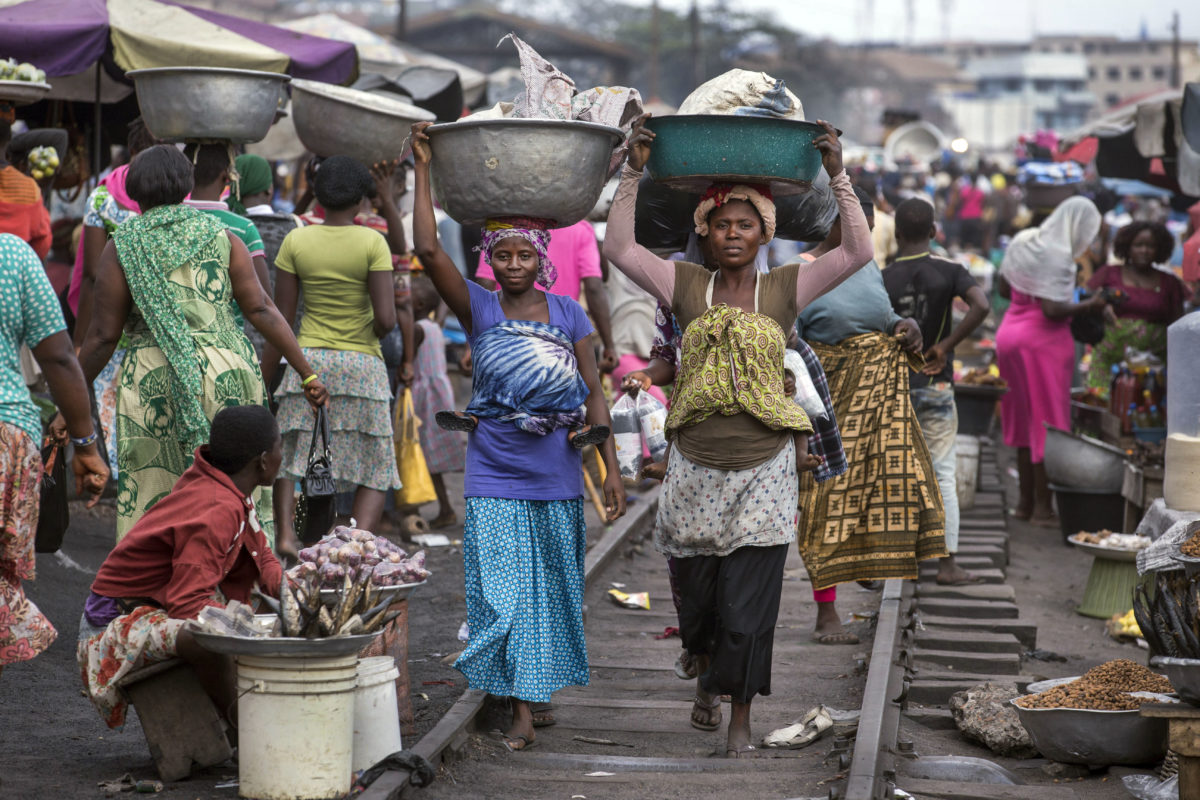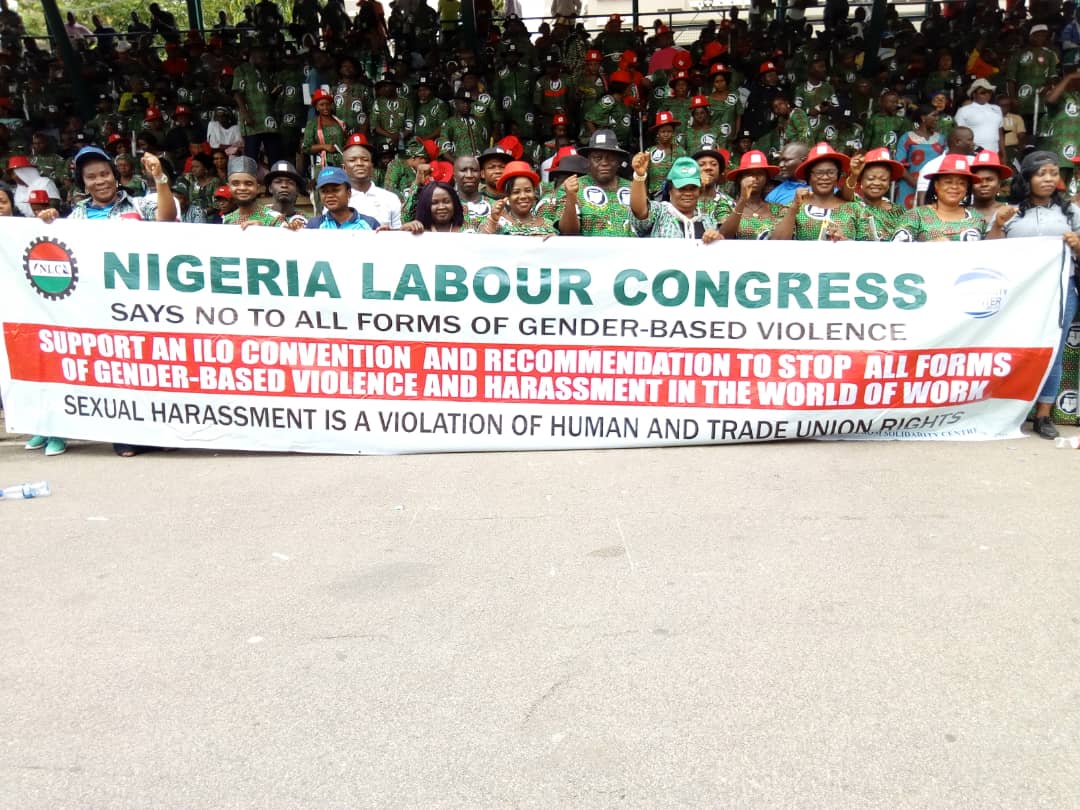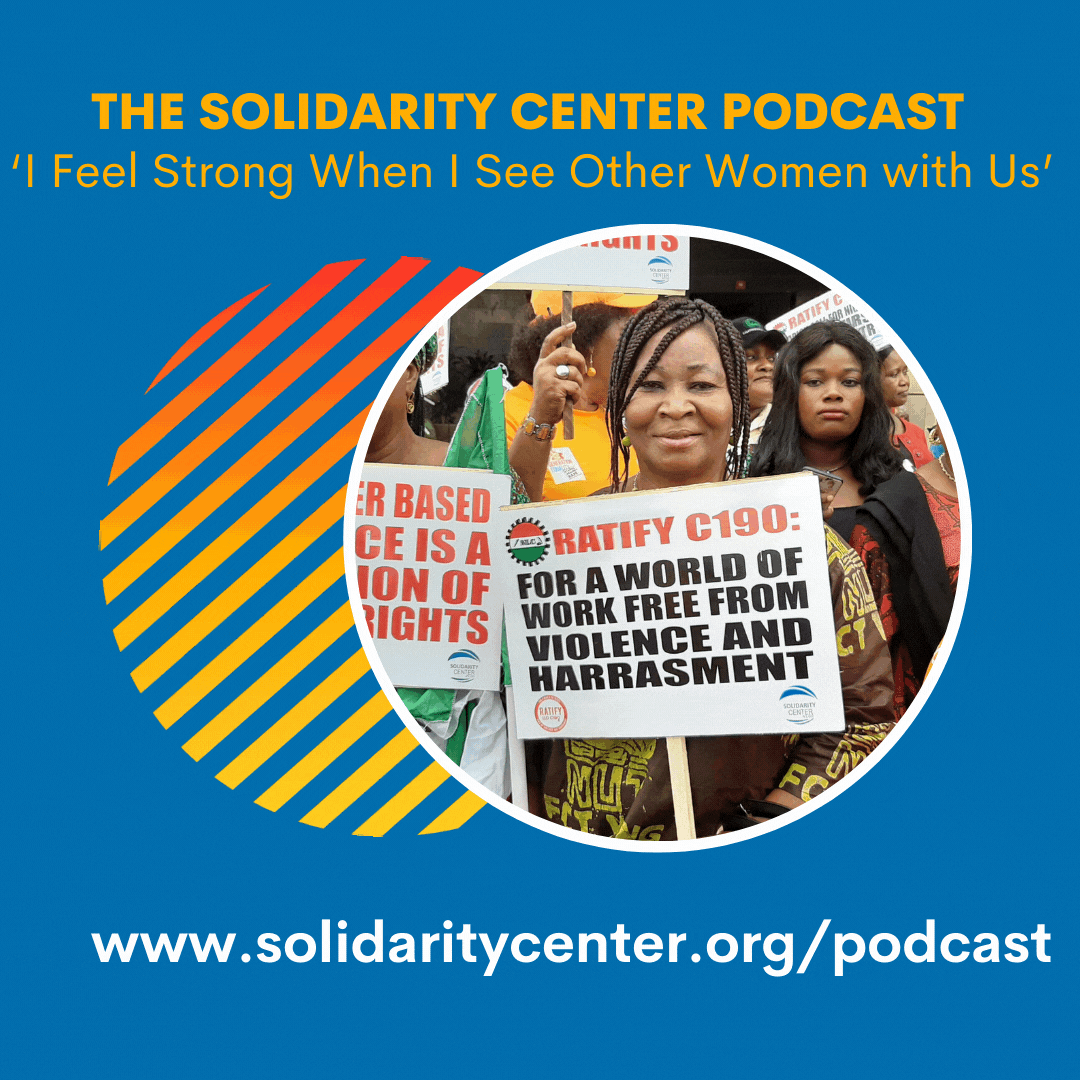Informal workers are routinely excluded from economic and political decision-making, and their work is systematically devalued and made invisible. The COVID-19 pandemic has only intensified these dynamics and has resulted in skyrocketing rates of domestic violence,...
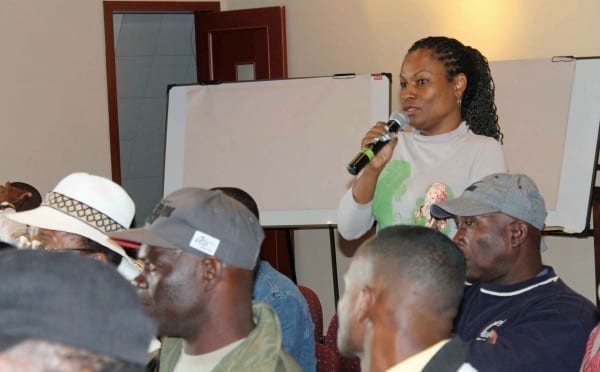
The Solidarity Center supported the development of the Afro-Colombian Labor Council, the first national organization in Colombia dedicated to improving the working conditions of Afro-descendants. Credit: Solidarity Center/Rhett Doumitt
The Solidarity Center engages with unions and their allies through an analysis and practice of equality, radical inclusion and intersectionality that is explicitly feminist, anti-racist, pro-equality, pro-worker, pro-migrant and class conscious.
The Solidarity Center designs and implements strategies to confront the multiple and intersecting forms of oppression that contribute to economic structures in which women and other groups of workers are devalued and excluded from economic and social equality. This requires a conscious effort to examine how oppressive forces play out throughout the global labor movement with a commitment to dismantle these systems. Explicit in this work is the understanding that the agency and leadership of the most marginalized workers are key components of decent work and economic justice for all.
The Solidarity Center has assisted unions and their allies in countries such as Cambodia, Colombia, Georgia, Honduras, Indonesia, Kyrgyzstan, Morocco, Nigeria, Nicaragua, South Africa and Tunisia to ensure meaningful participation of historically excluded and marginalized workers in unions and other democratic structures.
See related factsheets, videos and reports.
In Morocco, the Solidarity Center supported a multi-year effort to build women worker power and gender equality which led to the inclusion of women workers during negotiations for the first collective bargaining agreement in the informal agriculture sector. In Colombia, the Solidarity Center supported the development of the first national organization dedicated to improving the working conditions of Afro-Colombians.
In Kyrgyzstan, Morocco and Tunisia, Solidarity Center is assisting in strengthening union efforts to promote inclusion of individuals with disabilities. In Nicaragua, Solidarity Center supports domestic workers as they address inclusion of LGBTQI union members to ensure they can represent themselves, articulate their priorities and increase their leadership opportunities and visibility.
The Solidarity Center:
- Conducts research and awareness-raising to challenge systems of oppression and inform inclusive approaches to building worker power across social identities at all levels
- Supports representative, inclusive leadership in our partner organizations
- Engages in cross-movement work to combat tools of oppression that impact women, including gender-based violence and harassment at work
- Brings together unions and community groups to identify shared socioeconomic struggles, analyzes how those struggles are linked to systemic racism and implements organizing, legal and advocacy strategies to collectively overcome the oppression that entraps workers in poverty
- Advocates for economic policies that uproot systemic discrimination and exploitation in labor markets.
Report Breaks the Silence on GBVH in Nigeria’s World of Work
A new report by the Nigeria Labor Congress (NLC) and the Solidarity Center, "Breaking the Silence: Gender-Based Violence in Nigeria’s World of Work," finds that gender-based violence and harassment (GVBH) at work is widespread in Nigeria, but goes largely unreported....
‘I Feel Strong When I See Other Women with Us’
Union women are not waiting for their governments to ratify Convention 190, the international treaty that addresses gender-based violence and harassment in the world of work—they are taking action now to ensure workers benefit from the powerful rights it provides,...
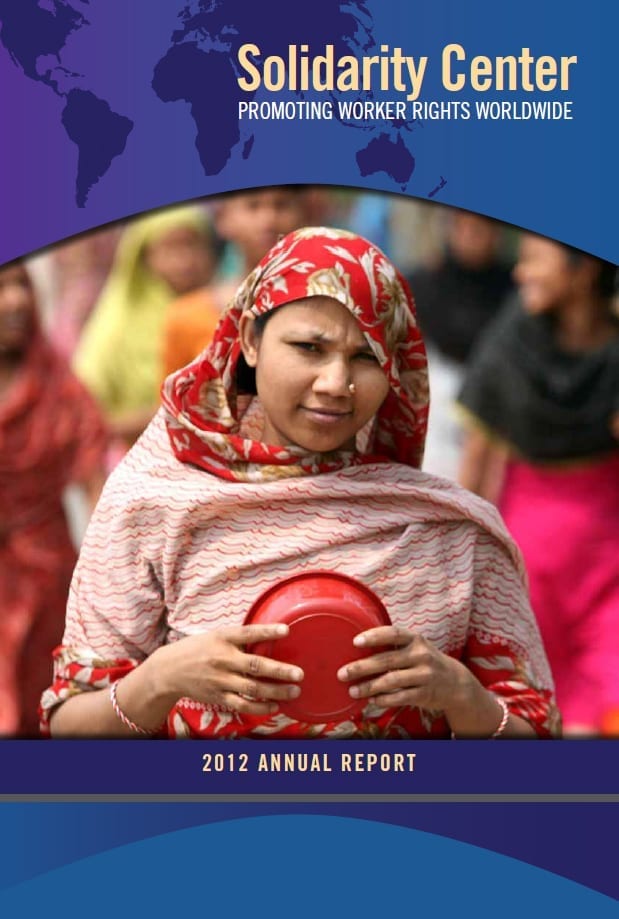
Solidarity Center 2012 Annual Report
Download here.
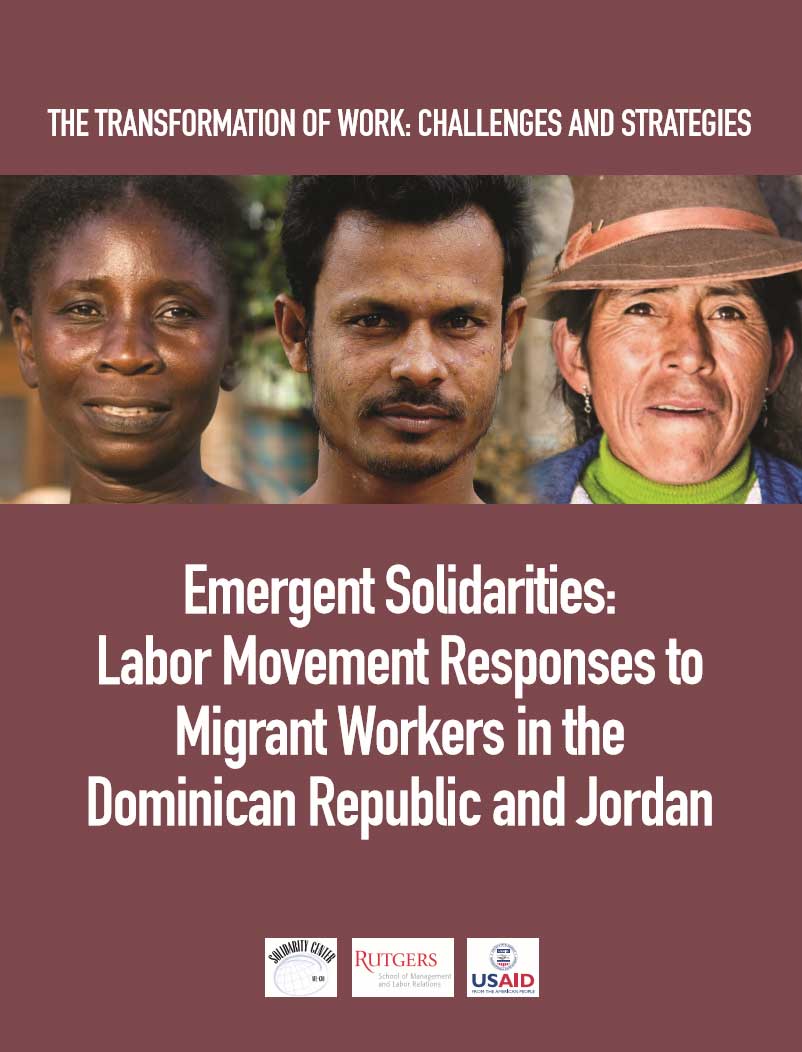
Emergent Solidarities: Labor Movement Responses to Migrant Workers in the Dominican Republic and Jordan (Rutgers, 2013)
This report explores examples of unions making significant change in their approaches to migrant worker organizing and how the Solidarity Center has played a role in shifting union thinking about migrant workers and supporting union engagement and activities. Part one...
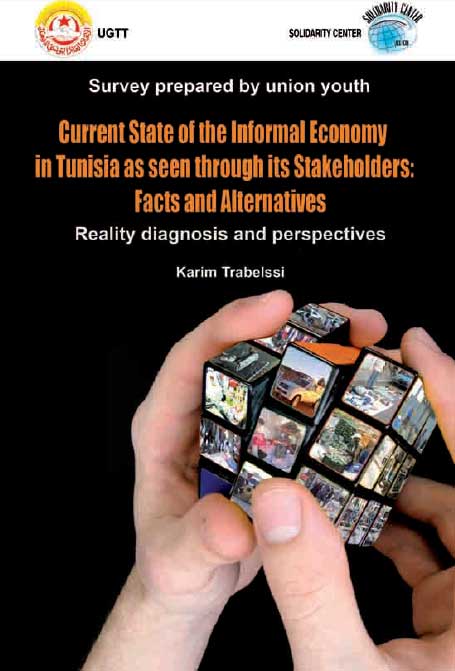
Current State of the Informal Economy in Tunisia as Seen through Its Stakeholders: Facts and Alternatives (June 2014)
A new Solidarity Center study takes a close look at the factors fueling the massive growth of Tunisia’s informal economy, and recommends actions to help shift workers in the precarious informal sector to jobs with health coverage and other social benefits. Download...
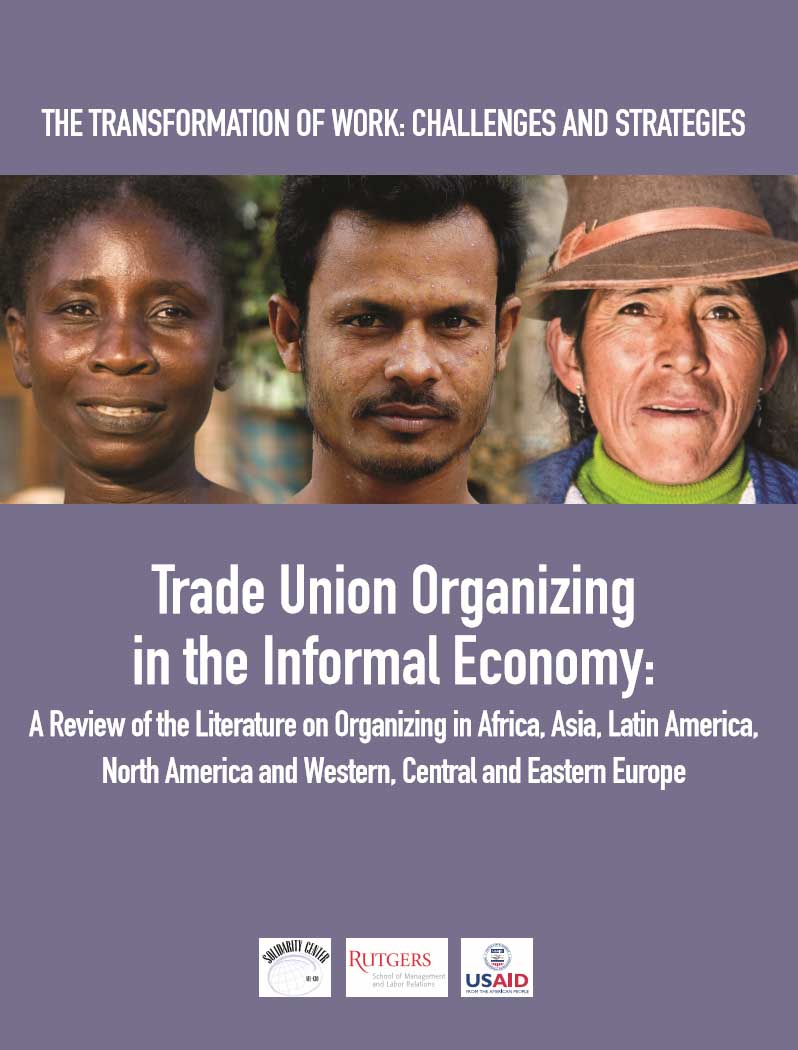
Trade Union Organizing in the Informal Economy: A Review of the Literature on Organizing in Africa, Asia, Latin America, North America and Western, Central and Eastern Europe (Rutgers, 2013)
This report reviews the literature of efforts throughout the globe by workers who labor outside the formal labor economy of their countries to form or join trade unions as well as unions’ efforts to organize and represent them. This Solidarity Center report is part of...
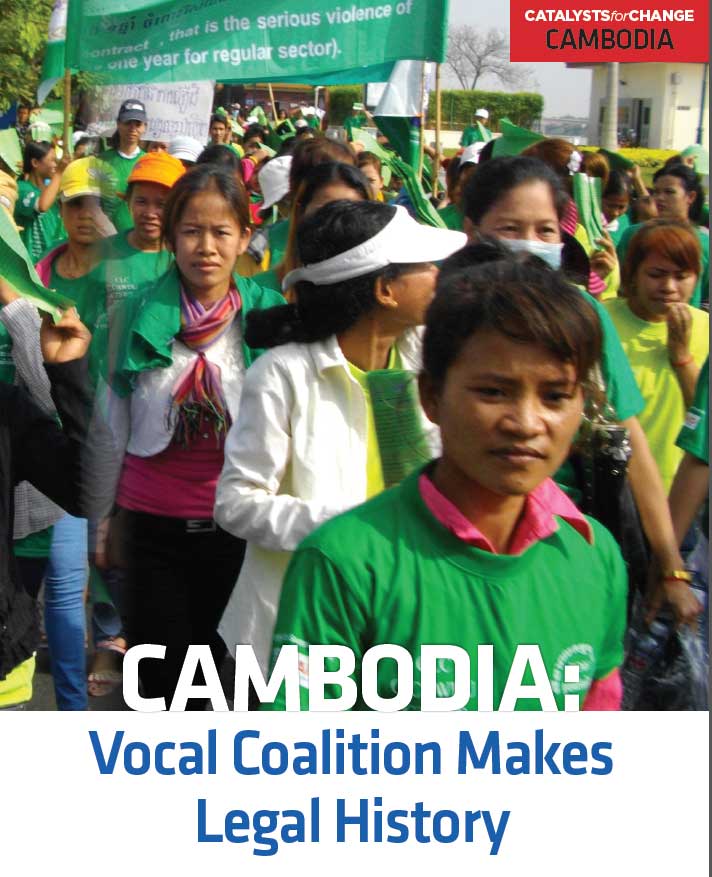
CAMBODIA: Vocal Coalition Makes Legal History (2013)
Cambodia’s nascent independent labor movement and human rights organizations worked to revise a labor law proposed in 2011 that would have significantly rolled back worker rights—and a Solidarity Center report describes how they did it. English (PDF) Arabic (PDF)...
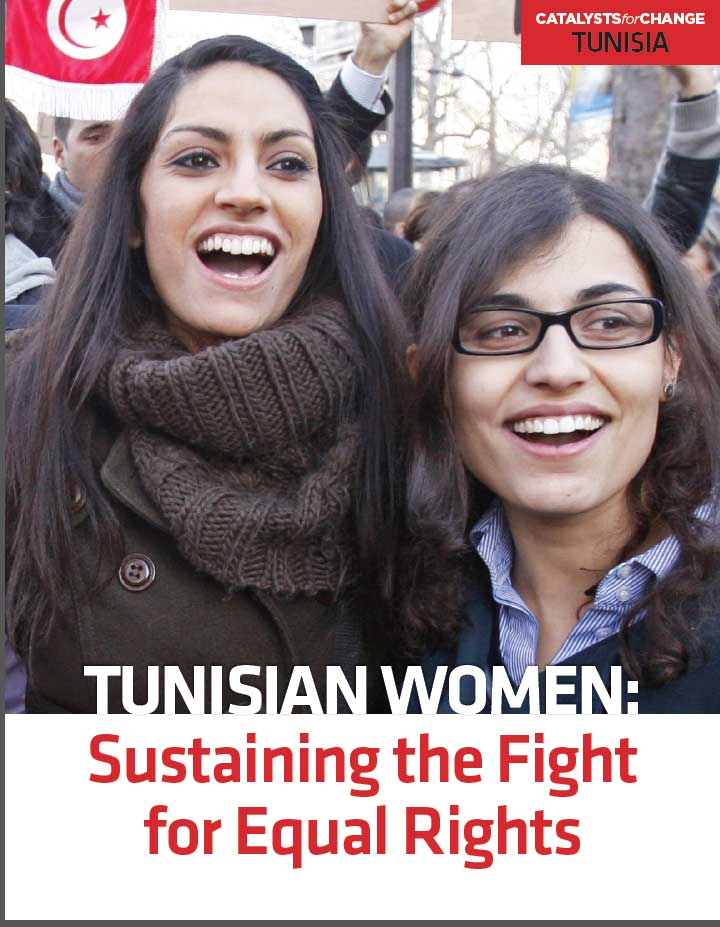
TUNISIAN WOMEN: Sustaining the Fight for Equal Rights (2013)
In 2011, Tunisian women helped spur protests and end autocratic regimes in Tunisia and throughout the Arabic-speaking world. Today, a Solidarity Center report finds Tunisian women remain in the forefront of ensuring democratic change in their country during the...

